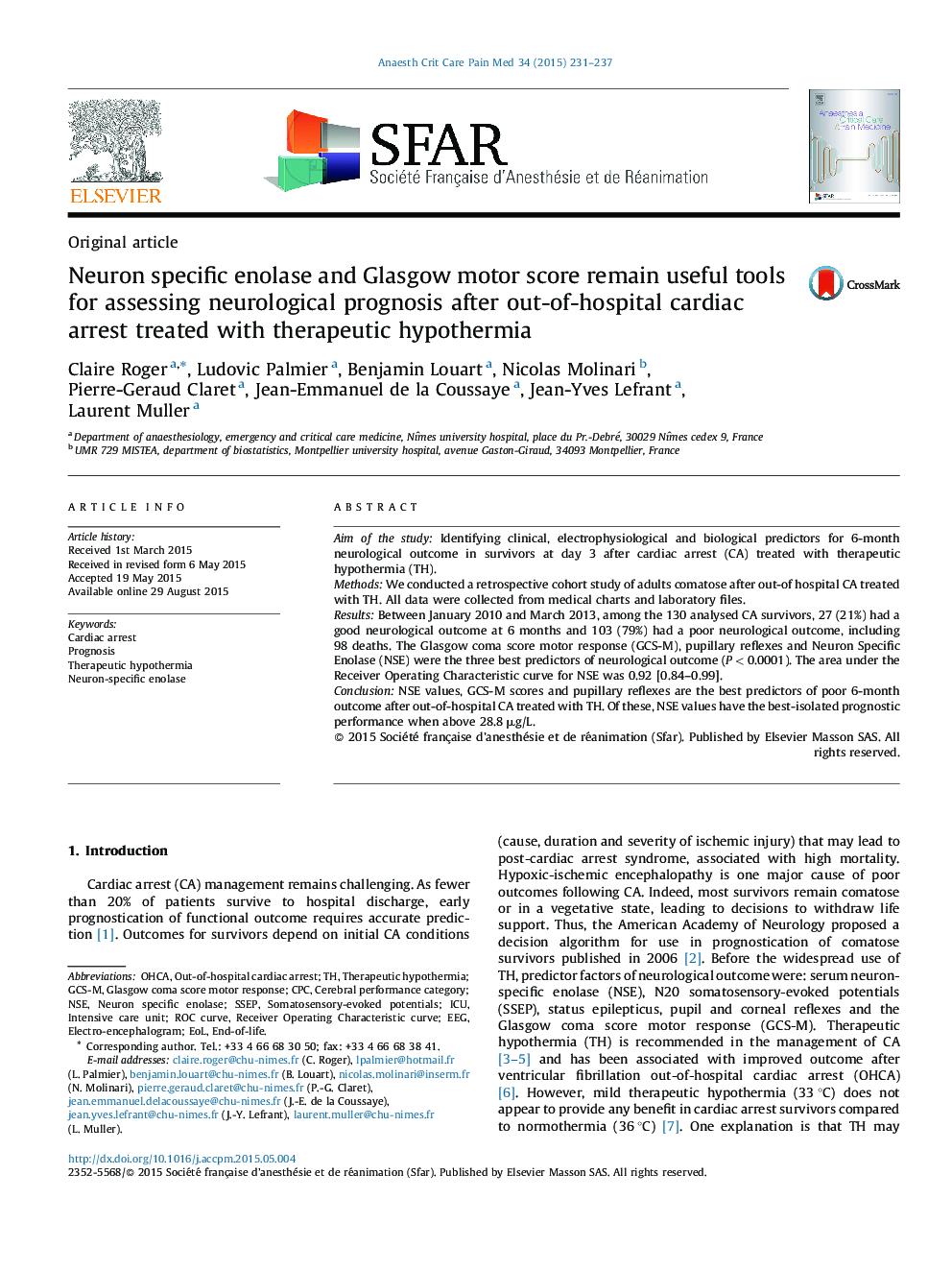| Article ID | Journal | Published Year | Pages | File Type |
|---|---|---|---|---|
| 2741927 | Anaesthesia Critical Care & Pain Medicine | 2015 | 7 Pages |
Aim of the studyIdentifying clinical, electrophysiological and biological predictors for 6-month neurological outcome in survivors at day 3 after cardiac arrest (CA) treated with therapeutic hypothermia (TH).MethodsWe conducted a retrospective cohort study of adults comatose after out-of hospital CA treated with TH. All data were collected from medical charts and laboratory files.ResultsBetween January 2010 and March 2013, among the 130 analysed CA survivors, 27 (21%) had a good neurological outcome at 6 months and 103 (79%) had a poor neurological outcome, including 98 deaths. The Glasgow coma score motor response (GCS-M), pupillary reflexes and Neuron Specific Enolase (NSE) were the three best predictors of neurological outcome (P < 0.0001). The area under the Receiver Operating Characteristic curve for NSE was 0.92 [0.84–0.99].ConclusionNSE values, GCS-M scores and pupillary reflexes are the best predictors of poor 6-month outcome after out-of-hospital CA treated with TH. Of these, NSE values have the best-isolated prognostic performance when above 28.8 μg/L.
